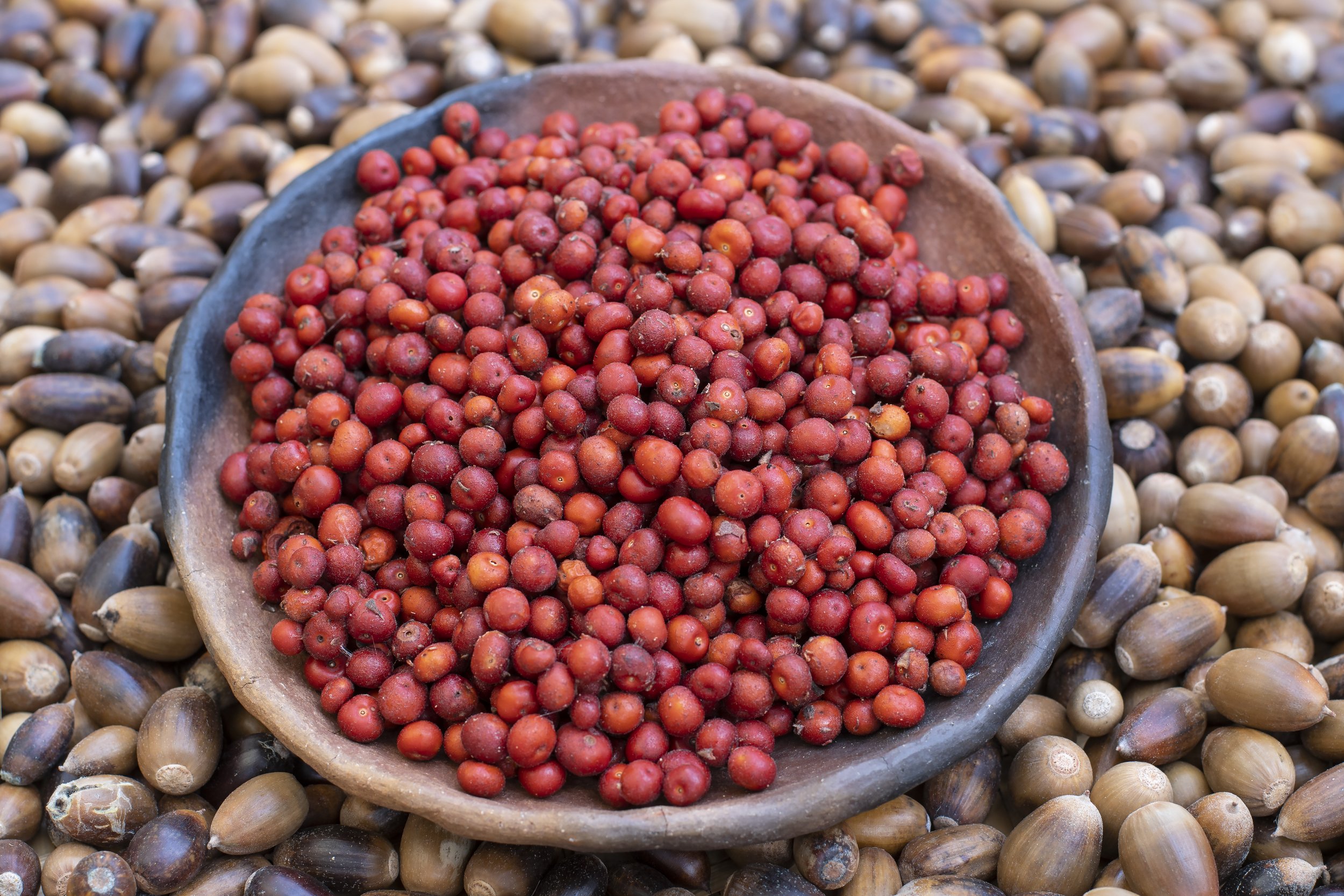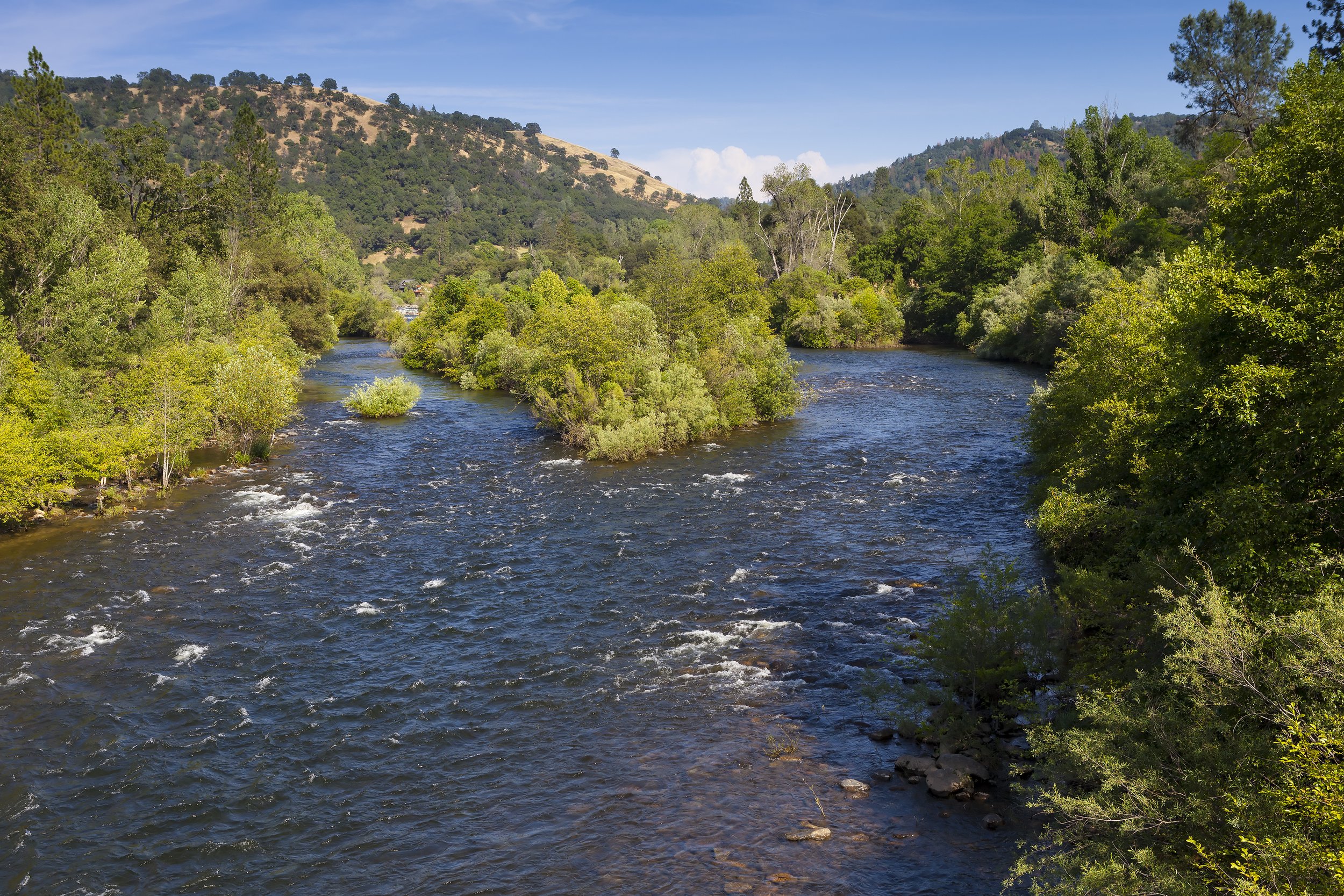
The future of food is in its roots
BETTER
FARMING,
BETTER
RESULTS
For 150+ years, agriculture in California has adapted the environment to the crops.
This design flaw leads to
Crop failures
Plants dependent upon artificial landscapes are failing with climate change.
Water shortages
Damming and draining our rivers and aquifers to irrigate non-native crops is unsustainable.
Habitat destruction
California has more endangered biodiversity than any other part of the contiguous United States.
We can fix agriculture by changing what we grow - and how we grow it.

WHERE DO WE START?
Bringing low water, climate-adapted native foods to the mainstream, starting with acorn.
Domesticating native crops that provide both habitat and food. This work is funded by the National Science Foundation.
COMMERCIAL
AGRICULTURE IS
RECKLESSLY
CENTRALIZED
Only 174 species out of more than 30,000 known edible plants are grown commercially.
Three (wheat, rice, and corn) make up the majority of calories consumed by humans.
Soy is 75% of plant-based protein for humans and livestock.
Conventional crops are failing.
Since 2020, USDA crop failure insurance payouts have increased by 15%+ or more year over year.
Food prices rise with increased crop failures and farming expenses.

OUR SOLUTION
IS SIMPLE
We are adapting agriculture
to the environment
to reliably produce food at scale
HOW?
Domesticating new crops from natives that thrive here, instead of making small improvements to conventional crops.
A mix of science, technology, and nature drives our cutting edge rapid breeding process to create New Crops. Our process does not use genetic engineering, and preserves crop value as habitat for native pollinators and others. Bringing native plants into farms supports biodiversity, and helps diversify agriculture - reducing the risk of crop failures.
Working with existing landscapes and native foods.
California has millions of acres of Oak forests that can produce hundreds of millions of tons of acorn a year. Most of those nuts are left unharvested. By partnering with private landowners, we capitalize on this unharvested bounty as saleable Wild Foods, while protecting our remaining old-growth forests.

NATIVE FARMING BENEFITS
A climate-adapted food system yields long-term stability
No-irrigation native crops are resilient, and preserve rivers and aquifers.
Western native plants are uniquely adapted to drought, which is the biggest driver of crop failures from climate change. We can save trillions of gallons by eating foods that evolved to grow natively without irrigation.
Deep root systems rebuild topsoil over time.
Western native plants have stronger and deeper roots than conventional crops, and those root systems can sequester gigatons of carbon while building topsoil that improves future yields - unlike industrial farming that destroys topsoil, releasing C02. California’s Oak forests can sequester as march carbon per acre as a tropical rainforest, half of it in the deep topsoil they create.
Keeping forests and soils intact significantly reduces emissions.
Topsoil is the world’s most important carbon storage, storing more carbon than the entire atmosphere and all plants combined. Conventional Agriculture is responsible for more than 1/4 of greenhouse emissions, but rebuilding our native ecosystems can reverse this trend.
Preserving California’s Oak forests protects biodiversity.
These forests are home to more than 6,000 species. By monetizing healthy forests we can reverse the century+ of clearcutting for farms, orchards, and suburbs.

smart investment
COOPERATIVES aRE A
Manzanita is a California General Cooperative, and is majority owned by our workers. Learn more about Worker-owned Cooperatives.
No need for an “exit strategy”
Investing in a Cooperative means you don’t have to wait to recoup your investment - Co-ops can start dispersing dividends are paid to worker-owners and investors at profitability.
Fewer taxes, higher profits, more money
Cooperatives don’t pay taxes on funds dispersed as profit sharing, leaving more for our worker-owners and investors. Co-ops often outperform conventional businesses because the whole team shares the rewards of success.
More resilience across market conditions
Cooperatives are nearly 30% less likely to go out of business compared to traditional Corporations, particularly in times of economic upheaval.
More wealth for communities
Co-ops return significantly more wealth to their local communities through philanthropy and direct support than equivalent conventional businesses. They also build wealth for entire communities over time by returning profits to worker-owners.
Invested staff, better adaptability
Worker-owners who are empowered to make change are more satisfied, more engaged, and more productive. Cooperatives are more likely to recognize good ideas from all of their members - not just leadership - making them more adaptable.


